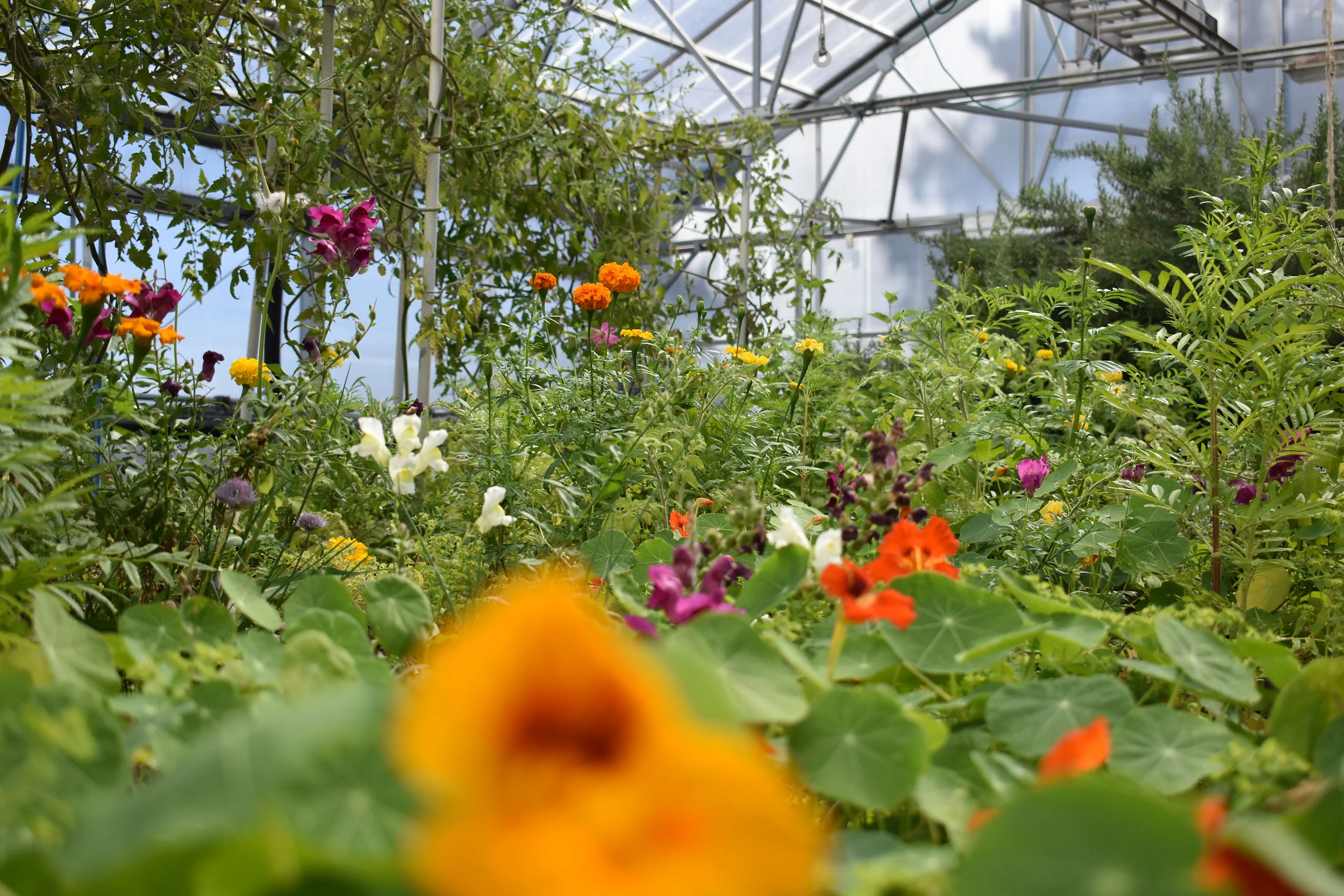
Bee in the Know
Bee in the Know
At the UCCS Farm, we proudly raise bees to provide students with invaluable opportunities to study these fascinating creatures and to foster a sustainable and thriving ecosystem across our gardens.
Allergy Notice:
Please be aware that bees are present on the Farm premises. If you have allergies, make sure to bring appropriate accommodations, such as an EpiPen or allergy medications, in case of a sting.
Myth vs. Fact
Fact: Most bees are not aggressive and will only sting in self-defense or to protect their hive. Bees are generally more interested in foraging for nectar and pollen than interacting with humans.
Safety Tip: If a bee buzzes near you, stay calm and gently move away. Our bees are accustomed to humans and are unlikely to sting, but it’s always best to exercise caution.
Fact: Bees are vital pollinators, playing a crucial role in the pollination of many crops and wild plants. Without bees, many plants would not reproduce, significantly impacting food supplies and ecosystems. Our bees help maintain the health of all our crops and provide us with honey and beeswax.
Fact: Responsible beekeeping can be beneficial for bee populations. Beekeepers provide care, monitor for diseases, and help boost bee numbers. At the UCCS Farm, we prioritize the health and welfare of our bees, ensuring they receive the
best possible care.
Fact: While bees are primarily known for pollinating flowering plants, they also play a crucial role in pollinating various crops, such as fruits, vegetables, nuts, and seeds, making them essential for agriculture and biodiversity. Many crops feature small buds that flower as they mature. In our Mediterranean Greenhouse, you can see flowers on beans, herbs, peppers, and fruits.
What is Pollination?
Pollination is essential for crop growth. Each flowering seed plant produces pollen, a powdery substance containing reproductive cells, which allows crops to produce fruits. Flowers also produce nectar, which attracts bees. As bees drink nectar, pollen sticks to their fuzzy bodies. When they land on the next flower, they transfer pollen, triggering reproduction and the growth of crops we harvest and eat.
Did You Know?
The average pollen cell is smaller in width than a human hair!
Other Facts About Honeybees
Hive Bees are Divided into Three Sections:
The Queen Bee: The Queen runs the hive, communicates with other bees, and lays eggs. She can live up to 5 years and lay up to 2,500 eggs daily in the summer.
Worker Bees: These are the bees you see flying around, drinking nectar, and pollinating crops. They collect nectar and produce honey for the winter. Worker bees live about 5-6 weeks, producing about 1/12 of a teaspoon of honey each.
Drones: Male bees that mate with the queen. Several hundred live in the hive during spring and summer but are expelled in winter to make space for workers and the next generation of bees.
Honeybees, despite their small size, can fly over 15 mph and beat their wings 200 times per second!
Addressing Colony Collapse Disorder
Due to climate change, monocultures, pollution, and heavy agrochemical use, the global bee population is drastically decreasing, a phenomenon known as Colony Collapse Disorder. At the UCCS Farm, we are committed to growing organic crops, cultivating a variety of species, and providing the best care for our hives to combat Colony Collapse and increase the health of our local bee population.
How You Can Help
Interested in helping bees in your neighborhood? Consider planting a native wildflower garden or growing flowering crops in pots on your porch. Native species require little water and maintenance, as they are adapted to the Colorado climate. Here are a few varieties to consider:
- Herbs: English lavender, purple basil, wild chives
- Berries: Raspberries, blackberries
- Vegetables: Cucumbers, beans, tomatoes
Join us in our mission to protect and support bee populations for a healthier, more sustainable future.